PM says Tories not neutral on NI remaining part of UK
- Published
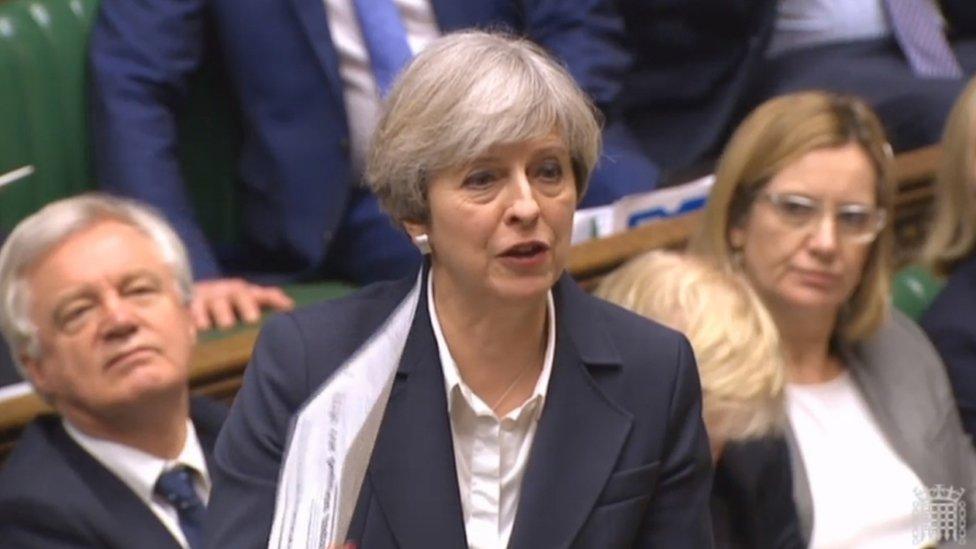
Theresa May was speaking in the House of Commons
The Conservative Party has a "preference that Northern Ireland should remain part of the UK", Prime Minister Theresa May has said.
Mrs May was speaking after she triggered Article 50 of the Lisbon Treaty, starting a two-year countdown to the UK's exit from the EU.
She said there would be "no return to the borders of the past".
Meanwhile, Labour leader Jeremy Corbyn says there should be a referendum on Irish unity if the assembly wants one.
Mr Corbyn was asked by the BBC's Andrew Neil if, following the triggering of Article 50, he wanted to see a referendum on a united Ireland.
"That's up to the people of Northern Ireland to decide," he replied. "If the Northern Ireland Assembly wants (a referendum) then they should be allowed to."
Earlier, in the House of Commons, Mrs May responded to a question from Ulster Unionist MP Danny Kinahan who asked if she would pledge to back remain in any future border poll.
The prime minister said that the government was "fully committed to ensuring that the unique interests of Northern Ireland are protected and advanced" as the UK established its negotiating position in relation to Brexit.
She said this included support of "the Belfast Agreement including the principle of consent that Northern Ireland's constitutional position is a matter for the people of Northern Ireland to determine".
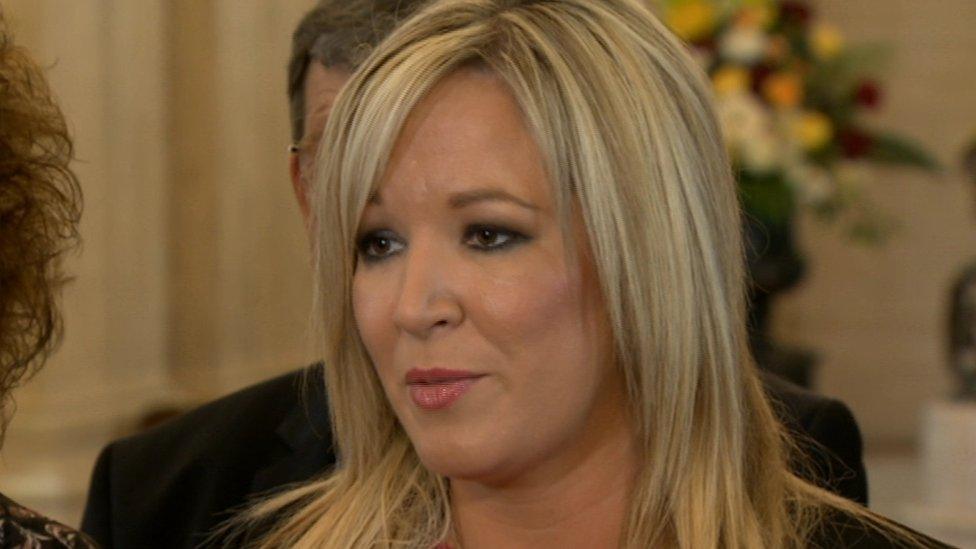
Michelle O'Neill said Brexit would be a disaster for Ireland
However, she said the Conservative manifesto "made clear we have a preference that Northern Ireland should remain part of the United Kingdom and we will never be neutral in expressing our support for that and that's because I believe fundamentally in the strength of our union".
Mrs May said it was the expectation of the government that the devolved administrations, including Northern Ireland, would see a "significant increase" in their decision making power.
EU no to hard border
Northern Ireland voted to remain in the EU Referendum by a majority of 56% to 44%.
The European Parliament's chief Brexit negotiator, Guy Verhofstadt, said the EU cannot accept a hard Irish border.
"For the European Parliament, the unity of the 27 is vital and the best way to achieve this is to take on board in the negotiation mandate of the union all the interests of the 27 member states, especially of the Republic of Ireland," he said.
"We recognise, as a parliament, that there is an special threat on Ireland and also on Northern Ireland and that new unrest in Northern Ireland has absolutely to be avoided.
"Therefore, we are very clear the Brexit agreement needs to fully respect the Good Friday Agreement in all its aspects. That means also that we will never accept a hard border again between Northern Ireland and the Irish Republic."
Theresa May says she wants a 'frictionless' Irish border
Irish Foreign Minister Charlie Flanagan said the Republic was ready for negotiations.
"The parameters of the future relationship with the UK have still to be negotiated - but both the UK and the EU have been clear that they want to retain a close and friendly relationship. That is our wish, also," he said.
Mrs May's Article 50 letter says the government wants to avoid a return to a hard border between the UK and the Republic of Ireland, to be able to maintain the Common Travel Area and to make sure that the UK's withdrawal from the EU does not harm the Republic of Ireland.
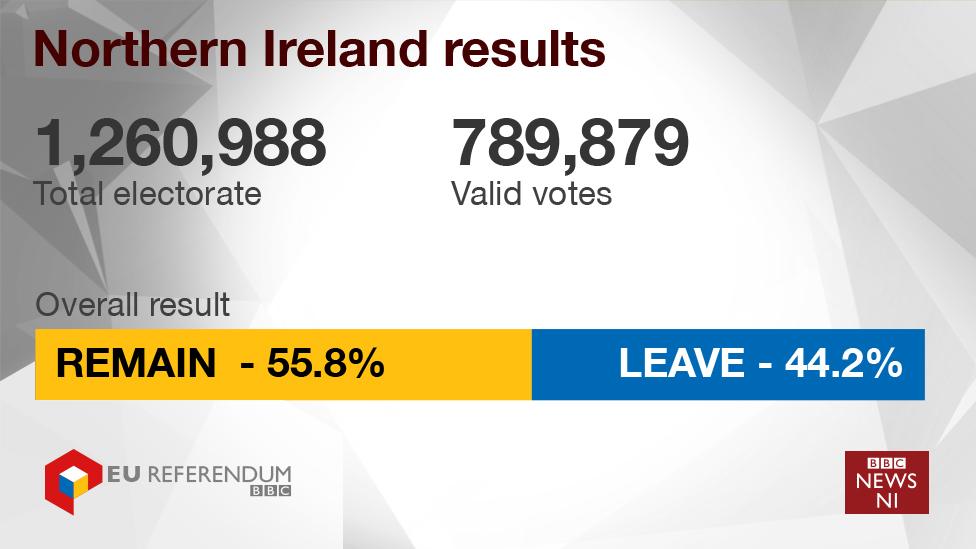
"We also have an important responsibility to make sure that nothing is done to jeopardise the peace process in Northern Ireland, and to continue to uphold the Belfast Agreement," it adds.
Later, speaking to the BBC, Mrs May said: "We are very clear, both I and I've talked to the government in the Republic, the taoiseach about this, we're very clear we don't want to see a return to the borders of the past.
"We're working very closely with the government of the Irish government about the arrangements that can be put in place to ensure a frictionless border in a practical sense, a frictionless border for goods and services and people travelling between Northern Ireland and the Republic.
Speaking in the House of Commons, DUP MP Nigel Dodds commended Mrs May for specifically mentioning Northern Ireland in her letter.
"We, on this bench, are convinced that she is the right leader of the country for these challenges," he said
However, Sinn Féin's northern leader Michelle O'Neill said Brexit would be a "disaster for Ireland, socially, politically and economically".
She said it was "unacceptable" that the Conservative Party "who have no mandate in Ireland can impose Brexit and a border against our will".
"The people of the north voted against Brexit in a democratic poll," she added.
'Very challenging'
Mrs O'Neill said there was "an onus now on the Irish government to act in the best interests of all Irish citizens and enter the upcoming negotiations to secure designated special status for the north".
The Irish government said it is unlikely that an agreement on the EU's future relationship with the UK will be reached for a "considerable time".
In a statement, it said the negotiations would be "very challenging" and Brexit would have "significant economic, political and social implications" for Ireland.
Stormont 'must return'
Meanwhile, during a visit to Newry on the Irish border, Secretary of State James Brokenshire said the UK wants to strengthen and deepen its cooperation with its European neighbours on security matters.
Mr Brokenshire also said the triggering of Article 50 underlined the need to have the devolved government on Stormont on its feet again.
Ulster Unionist Steve Aiken said: "In the prime minister's statement to the House of Commons today she made it clear that after Brexit the devolved administrations will see a significant increase in their decision-making powers, as responsibilities are repatriated from Brussels.
"This makes it vital that a Northern Ireland Assembly and Executive gets up and running as soon as possible to deal with the challenge of Brexit, and so we can maximise any opportunities which arise."
- Published30 March 2017
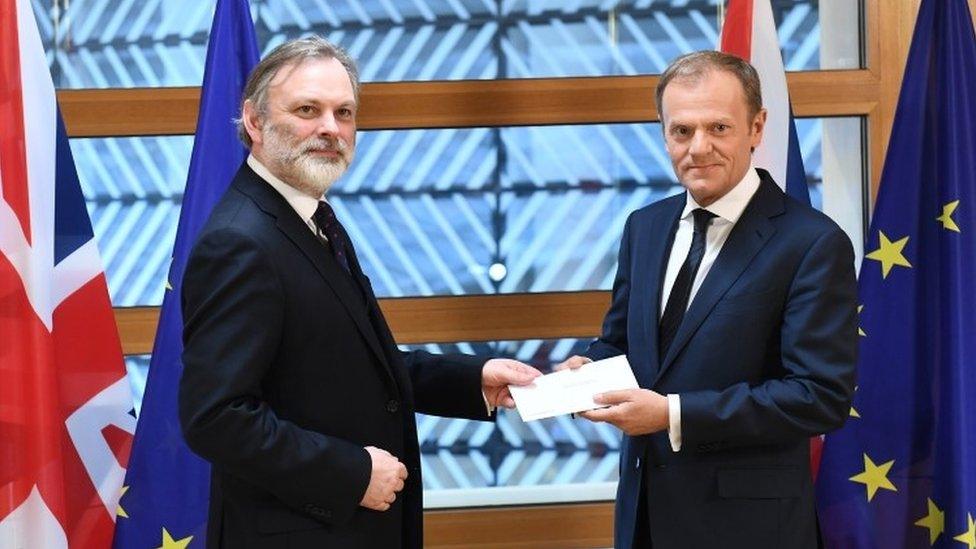
- Published28 March 2017
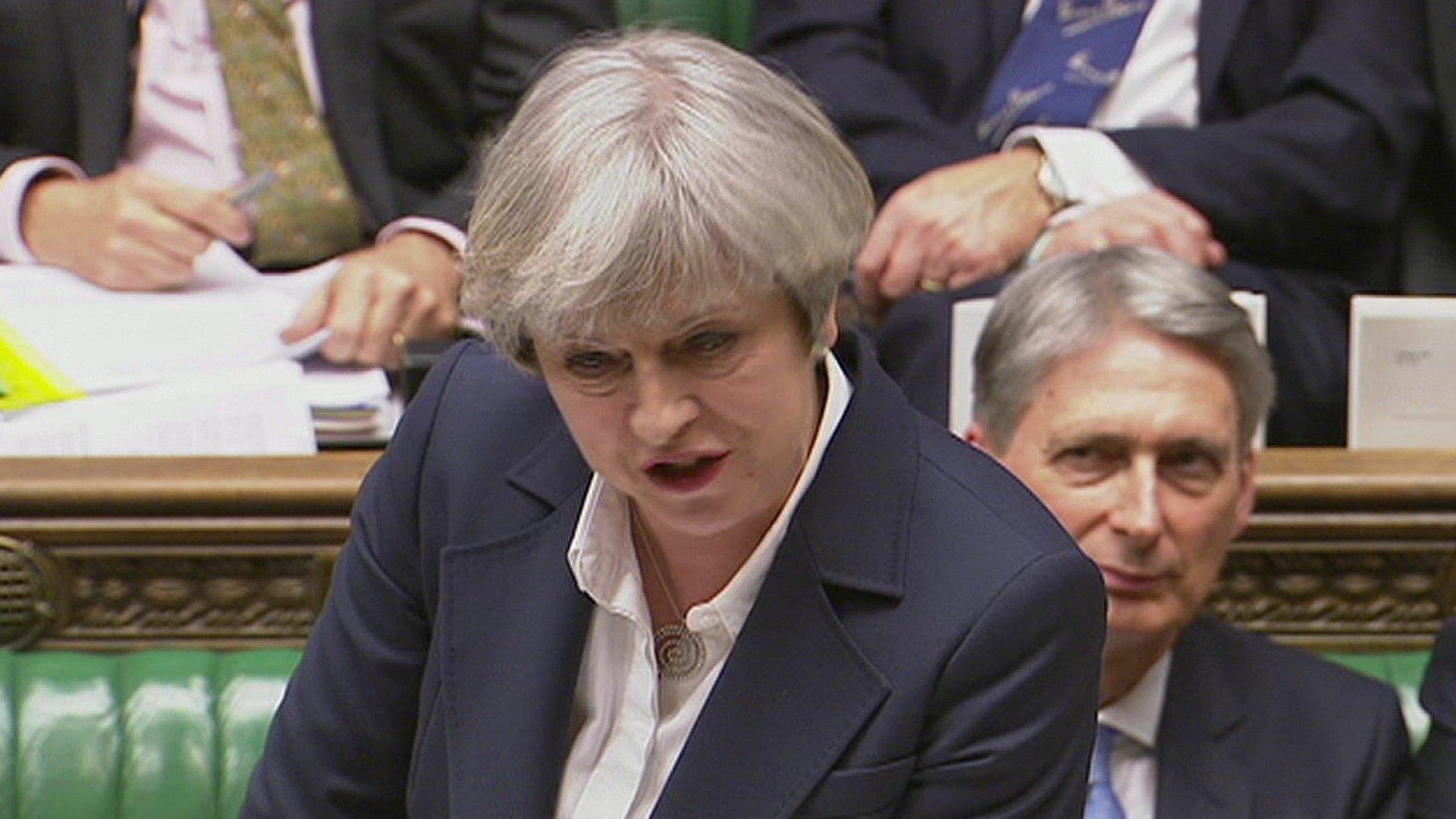
- Published29 March 2017
